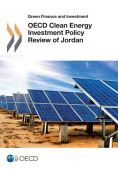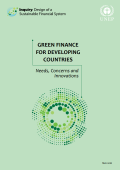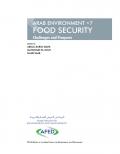
Scaling up investment in renewable power can significantly contribute to addressing many of Jordan’s crucial challenges. These include: sustaining economic growth; improving energy security and reducing fossil-fuel consumption and imports; and reducing fiscal pressure linked to costly support to fossil-fuel imports. Unlike some of its neighbours in the Middle East and North Africa (MENA) region, Jordan has few fossil fuel resources of its own and imports around 96% of its total primary energy supply. Concerns over energy security and fossil-fuel imports dependency have intensified in Jordan due to political events in the region, including gas supply interruptions since 2011, and more recently, the rapid growth in energy demand caused by a large influx of more than one million refugees and asylum seekers, mostly from Syria and Iraq.

Green finance is a strategy for financial sector and broader sustainable development that is relevant around the world. But the context differs considerably for different countries. Developing countries, notably those with underdeveloped financial systems, face particular challenges in financing national development priorities.
Broadly, concern and action to align financing to sustainable development is concentrated in three areas:

This report presents a model that analyses fossil fuel subsidy reform across 20 countries showing an average reduction in national GHG emissions of 11% by 2020, and average annual government savings of USD 93 per tonne of CO2 abated. With a modest recycling of resources to renewables and energy efficiency, emissions reductions can be improved to an average of 18%. Some countries have included reforms in Intended Nationally Determined Contributions, toward a climate agreement. The report presents case studies from Morocco, Philippines and Jordan and was authored by the Global Subsidies Initiative of IISD, as part of the Nordic Prime Ministers’ green growth initiative.


Renewable energy together with energy efficiency, sustainable transport, sustainable agriculture, sustainable tourism, green building and waste management are economic sectors which are often considered capable of paving the way for a transition to a green economy and providing win-win solutions offering job creation, poverty alleviation and environmental protection. However, there are a number of obstacles and challenges that might inhibit these sectors in their contribution towards greening the economy. These include limited knowledge and awareness relevant to green economy and green jobs, gaps in policy and regulations, limited financial incentives to support green initiatives, and related awareness and skill shortages.
